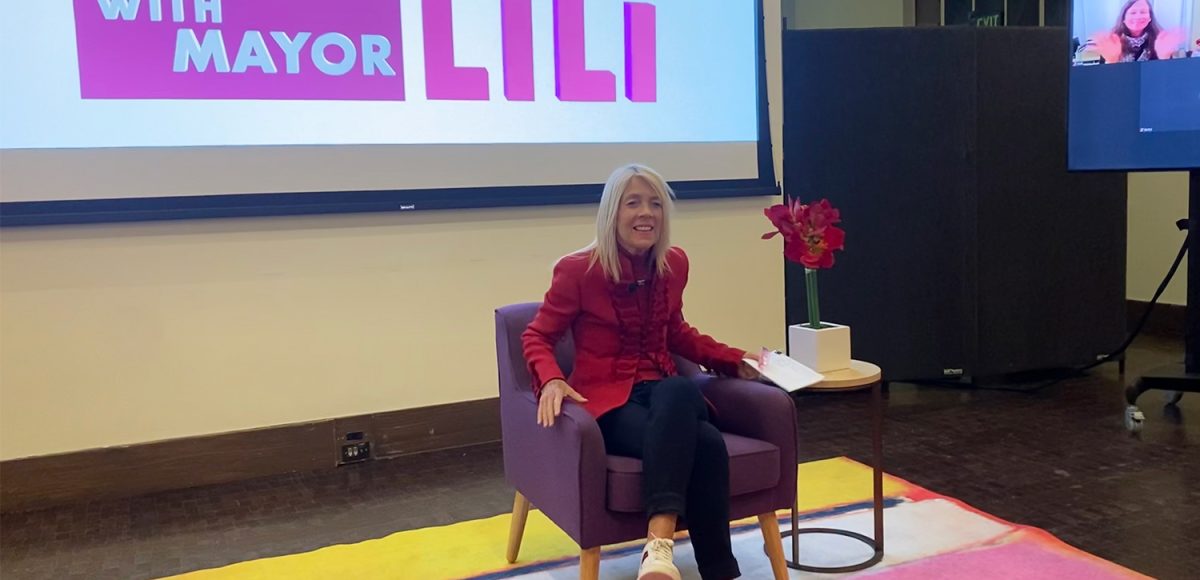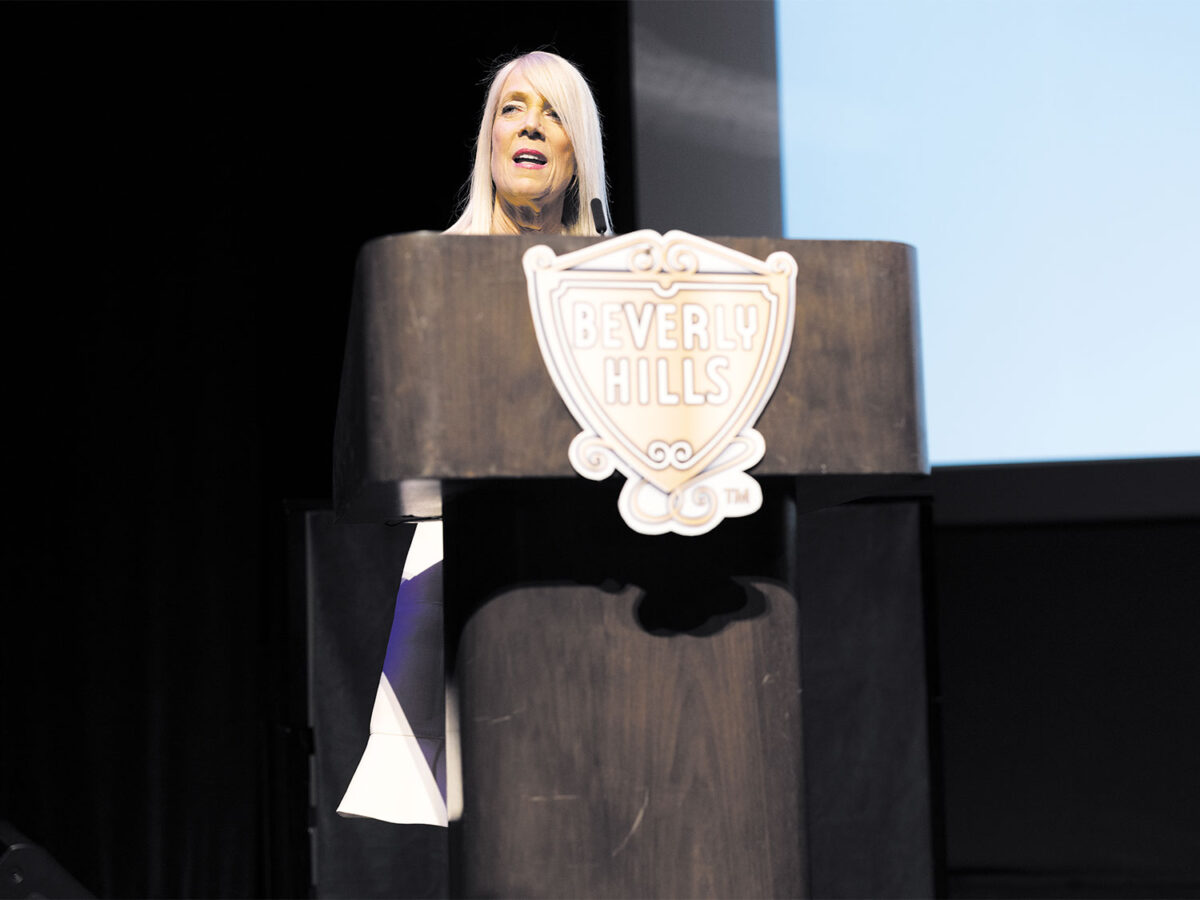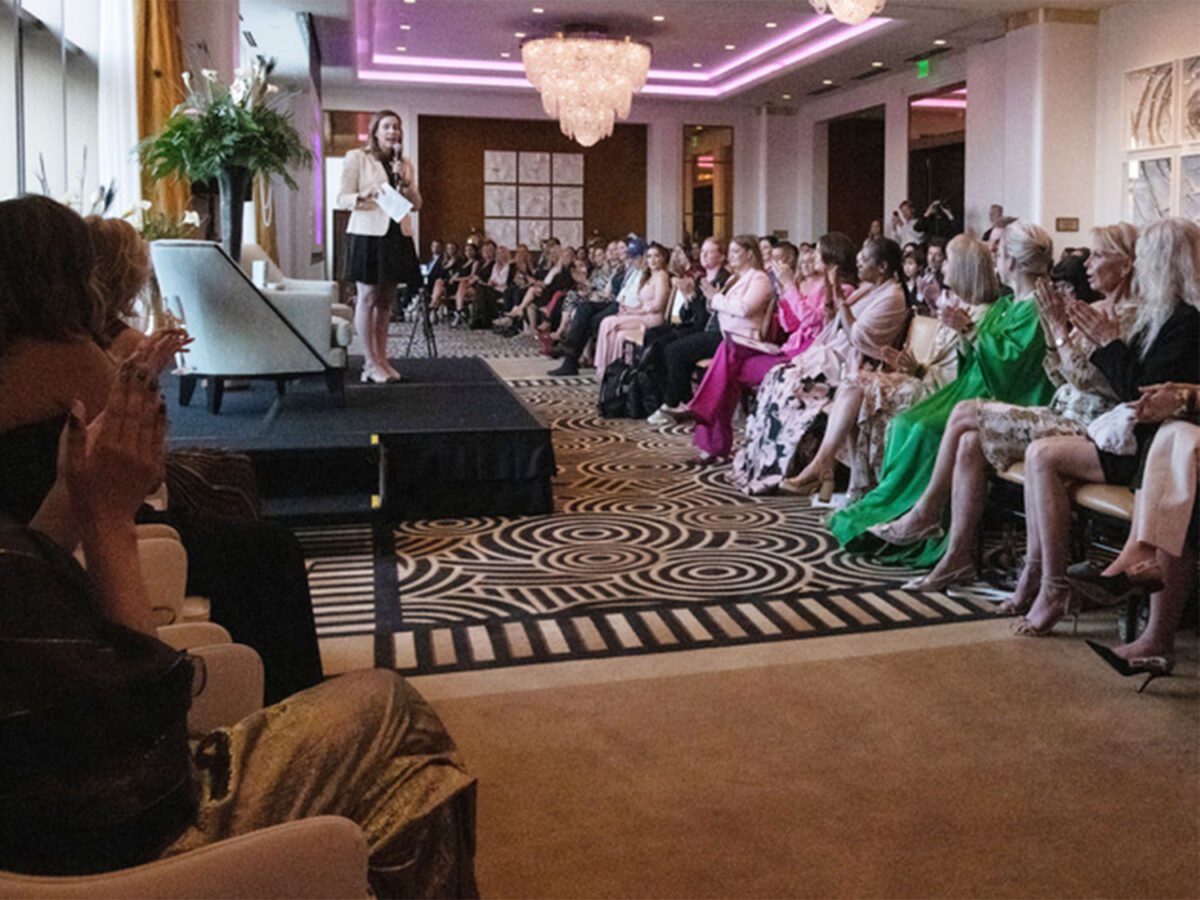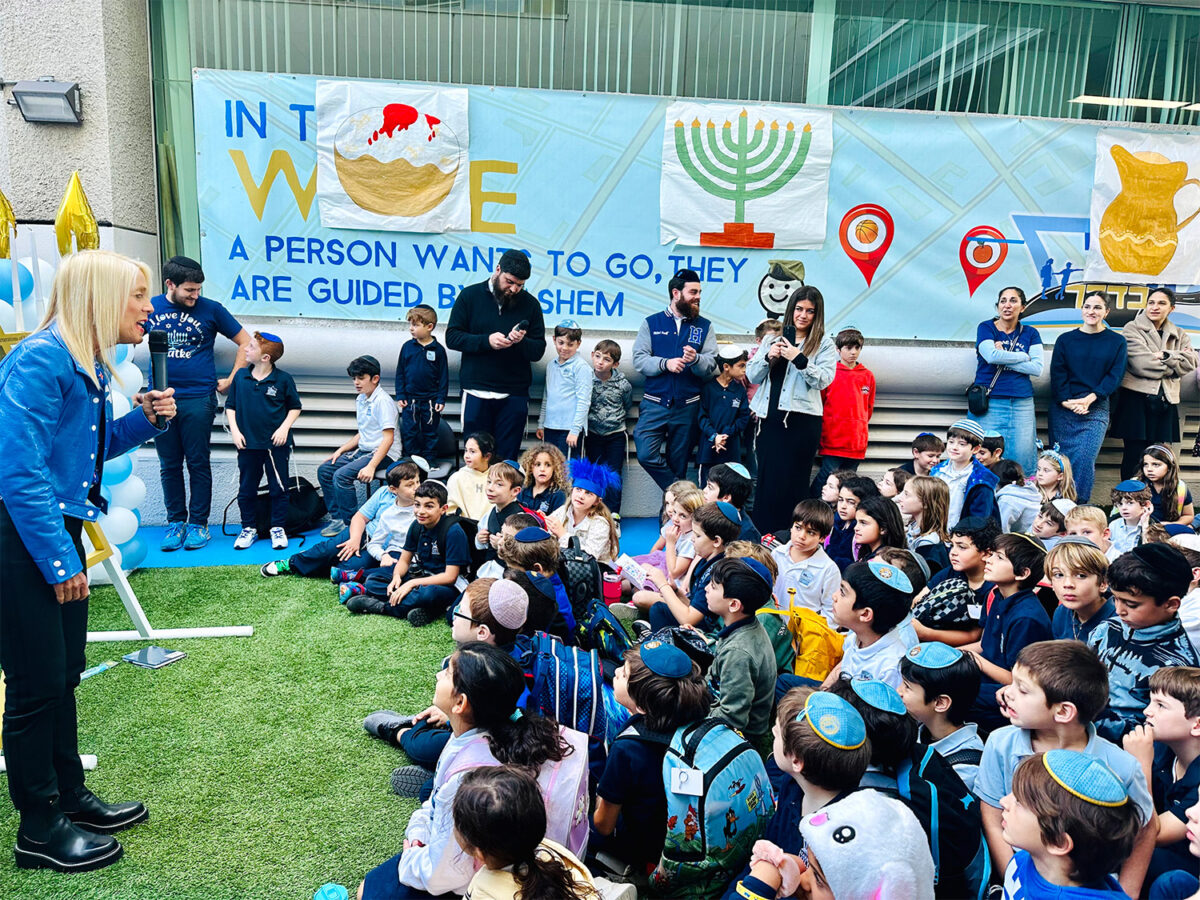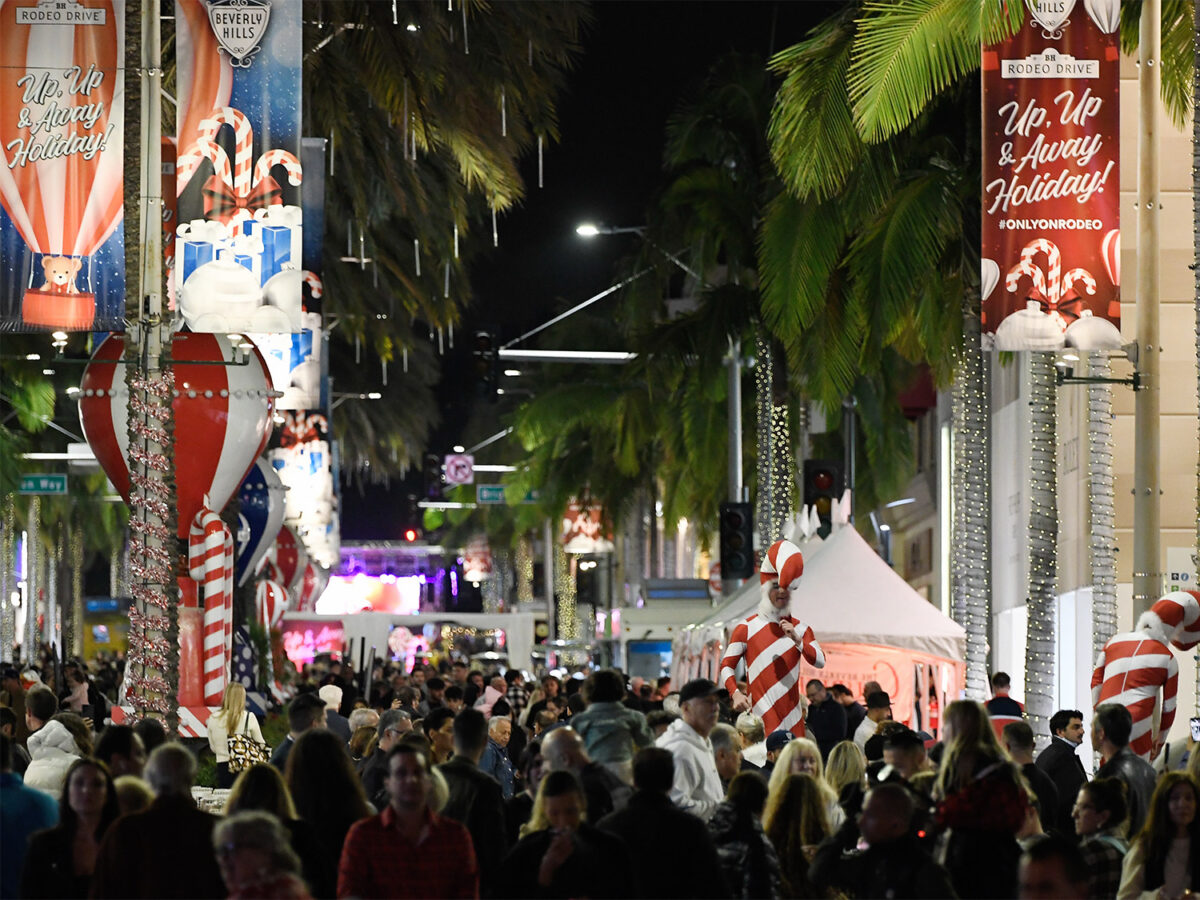Concerns about homelessness, robocallers, clear food labeling and the shooting at a party in Beverly Crest were at the forefront of discussion at the Feb. 13 Live with Lili event.
Bosse said thousands of residents tuned in via Zoom at this month’s Live with Lili, while about 15 people showed up to the event in person. Community spirit and love for the city were palpable at the Valentine’s Day-themed town hall.
One of the topics discussed was how the Jan. 28 shooting in the Beverly Crest area of Los Angeles affected how the Beverly Hills community sees gun safety and residential parties. The shooting took place at a “short-term rental” just outside city limits. It left three people dead and four wounded.
One Beverly Hills resident who said he “grew up in that neighborhood” and “still has a relative that lives in that area” asked Bosse if she could work with officials to add cameras or additional lighting can be installed in houses in Beverly Hills that are rented out as AirBnB’s.
Short-term rentals are not allowed within the City of Beverly Hills but are allowed in surrounding areas.
“What you’re bringing up has been on top of mind for many residents,” Bosse said. “The (Beverly Crest) shooting definitely heightened all of our awareness to AirBnB’s and security, both for those who live around the area and those who are at these parties.”
Bosse added that BHPD has been called to check in on multiple parties in the Beverly Hills area since the incident occurred.
Another resident, Adam Mills, brought up that new labels on waste bins make it confusing for residents to know which food waste goes into which bin due to a new organic waste recycling program for Beverly Hills residents.
The program requires Beverly Hills residents to sort their food waste items and yard trimming materials into new green bins. Organic materials such as meat, bones, bread, pasta, coffee filters, lawn trimmings and food-soiled paper products belong in the green bin while nonorganic materials metal, plastic, glass or pet waste are not allowed.
The program was designed to reduce the impact of pollution due to organic waste, which is responsible for about 20% of the methane released in the state.
Beginning in 2024, residents who incorrectly sort items could be slapped with fines of up to $500.
“The stickers have like five sentences there, and it’s almost like an essay whenever you go to the trash,” Mills said.
At the town hall, Mills learned that the food waste goes into the bin with the leaves label.
“I didn’t know that,” he said.
“You are proving your own point,” Bosse said.
Mills added he was still confused about which bin food-stained recyclables go into. Bosse added that the next Live with Lili session will provide further clarification.
Bosse also followed up on concerns about robocalls from the last town hall, and clarified which alerts specifically are sent out as robocalls to Beverly Hills residents.
Robocalls are only sent out to residents when there is a BHPD alert relating to crime or public safety matters.
“We really do try to not send out too many robocalls because then people seem to get a little bit frustrated with us,” Bosse said. Homelessness in Beverly Hills was another major topic brought up by a res- ident. The resident said that he noticed “a really big homeless issue” while driving at night around Rodeo Drive, and asked what is being done by the city to address it. Bosse said homelessness is “a very important reality” that the city is addressing. Stephanie Harris, Beverly Hills’ interim director of community services, added that the city has a 24 hour hotline that residents can call when residents see persons who could be in need of housing or mental health services.
Harris said the staff will dispatch the correct agency to assess the situation, but if any resident feels their safety may be threatened, to call 9-1-1 first and foremost before the hotline number.
Beverly Hills residents who see someone who may need mental health or housing services can call 310-285-2468.



